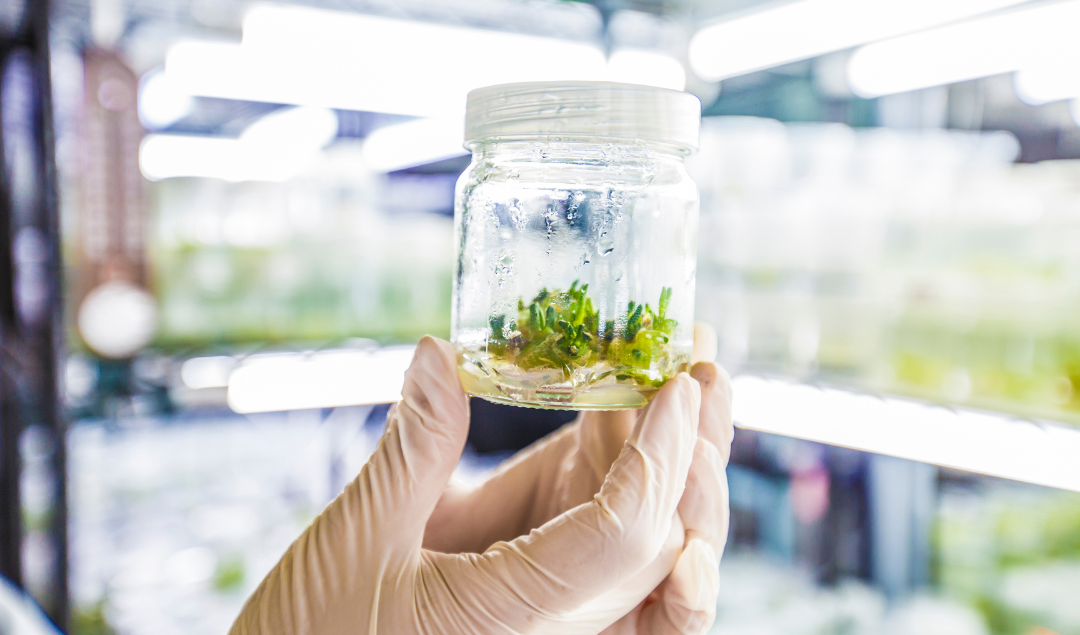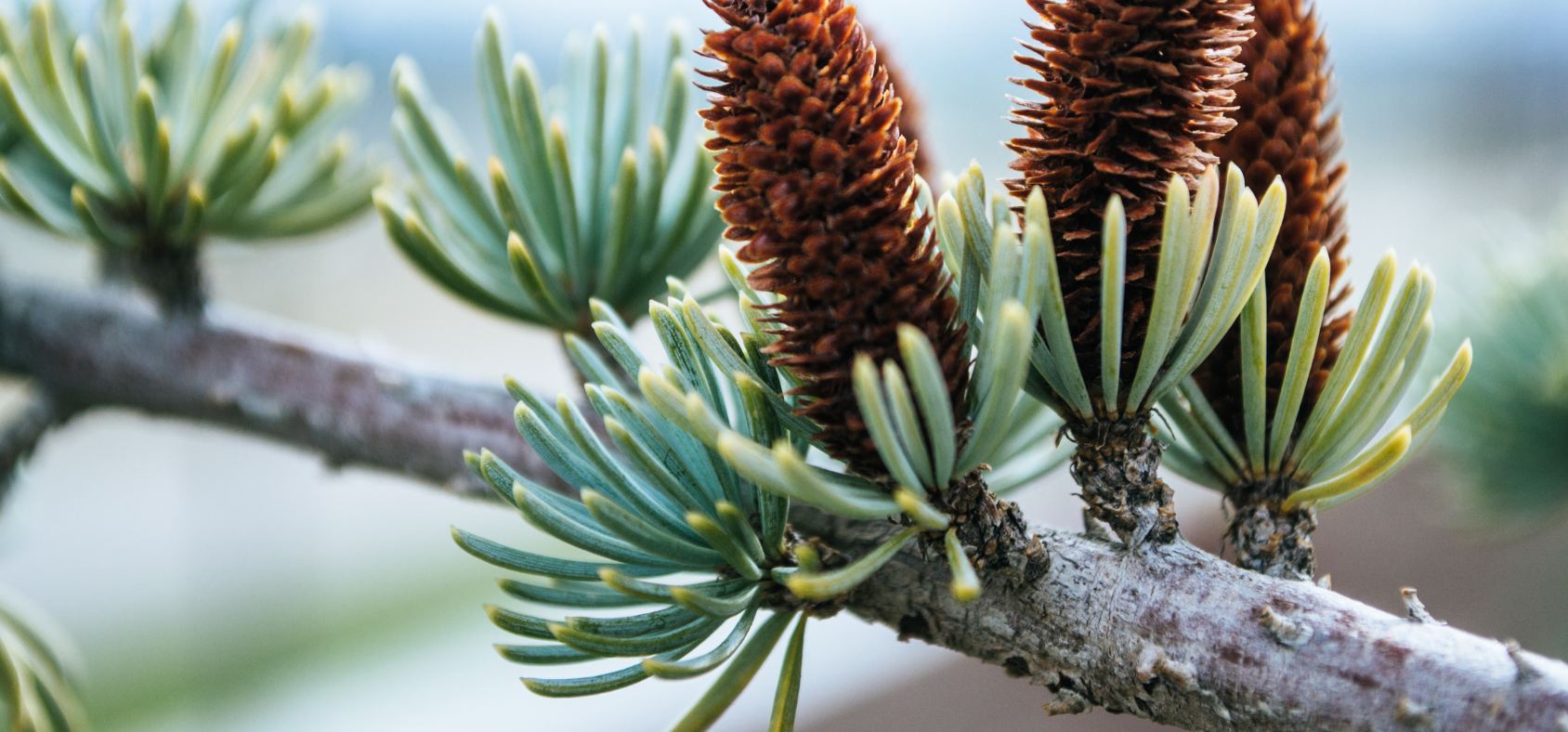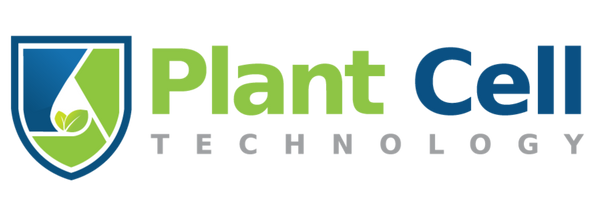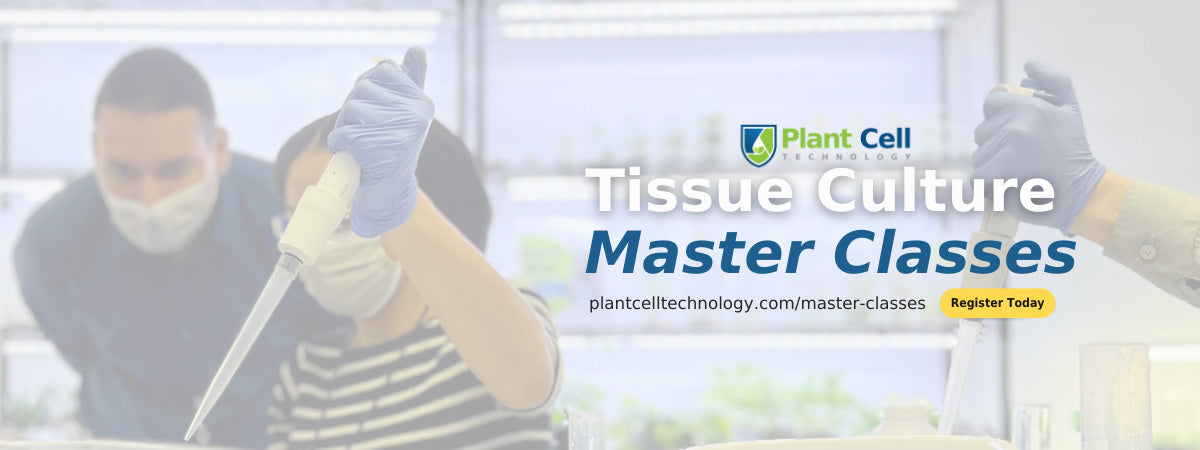
Plant Tissue Culture Essentials: PCT's Comprehensive Equipment Guide
As a content and community manager, I leverage my expertise in plant biotechnology, passion for tissue culture, and writing skills to create compelling articles, simplifying intricate scientific concepts, and address your inquiries. As a dedicated science communicator, I strive to spark curiosity and foster a love for science in my audience.


This article delves into the equipment and chemicals necessary to embark on a tissue culture journey and highlights how Plant Cell Technology Store can serve as a convenient one-stop shop for all your requirements.
Introduction
According to the latest report by Benzinga, the plant tissue culture market shows promising growth in the next few years. In 2022, the global Plant Tissue Culture market was assessed to be valued at USD 434.17 million, and it is projected to achieve a value of USD 725.41 million by 2028, exhibiting a compound annual growth rate (CAGR) of 8.93% over the forecast period.
While we can't specify exact numbers, we're confident that the plant tissue culture market will see rapid growth in the coming years, thanks to its numerous advantages.
This technique is well-known for its ability to efficiently mass-produce disease-free plants within a smaller space compared to conventional methods. Moreover, it enables the generation of hundreds and even thousands of plants from just a few tissue samples, without the need for a corresponding number of parent plants.
For those unfamiliar with the concept, tissue culture represents an advanced plant propagation method. It involves introducing small plant tissue samples into an artificial nutrient medium within a carefully controlled and sterile environment.

What began as a technique primarily confined to laboratory research has now become increasingly popular within the plant industry. Notably, it has captured the interest not only of researchers and businesses but also of small-scale flower enthusiasts and hobbyists seeking to acquire and employ this innovative approach.
Despite a decade having passed since the development and application of these techniques in labs and industries, comprehensive information remains somewhat elusive. This is precisely why we endeavor to provide educational videos and blogs aimed at assisting hobbyists and novices in the field of tissue culture.
Our goal is to help them learn about this innovative approach and seamlessly integrate it into their businesses, thereby fostering growth and increasing profitability.
This article delves into the equipment and chemicals necessary to embark on a tissue culture journey and highlights how Plant Cell Technology Store can serve as a convenient one-stop shop for all your requirements.
Plant Tissue Culture Requirements
In addition to having a suitable space for conducting tissue culture, one must also ensure the availability of quality reagents and high-quality equipment to successfully carry out the process. Tissue culture is not confined solely to expansive industrial settings; it can be effectively performed in the comfort of one's home. What's more, it doesn't demand a hefty investment to get started in this field; even as little as $300 can suffice when you are just getting started.
For commercial growers, the necessity expands to encompass significant space allocation, with dedicated areas for culture, acclimation, solution preparation, and storage. However, for home-based enthusiasts, a single room that is properly cleaned and divided for culture and acclimation purposes is typically sufficient.
The requirements for tissue culture can be categorized into two main components: tissue culture equipment and tissue culture chemicals. Let's dive into each of these aspects step by step.
Tissue Culture Equipment
To perform tissue culture equipment two major equipment you need include:
Autoclave
An autoclave is a crucial piece of equipment in plant tissue culture laboratories, serving as a sterilization powerhouse. It operates based on the principle of using high-pressure steam to eliminate microorganisms, spores, and contaminants from various laboratory materials and equipment.
By subjecting items to high-pressure, high-temperature steam for a specified duration, autoclaves effectively ensure a sterile environment, which is essential in preventing contamination in plant tissue culture processes.
This sterilization process not only safeguards the integrity of the plant cultures but also plays a pivotal role in obtaining disease-free plant materials, facilitating successful propagation and research in the field of plant tissue culture.

Laminar flow hood
A laminar flow hood is a critical tool in plant tissue culture laboratories, designed to provide a controlled, sterile workspace for handling delicate plant tissues. Its principle revolves around creating a unidirectional flow of highly filtered, particle-free air that moves vertically or horizontally over the work surface.
This laminar airflow serves to maintain a sterile environment by constantly removing airborne contaminants, such as dust and microorganisms, thus preventing their interference with sensitive tissue cultures and plant materials.
In a plant tissue culture setting, the laminar flow hood plays a pivotal role in ensuring the aseptic conditions necessary for successful propagation and experimentation. It provides a contamination-free space where plant tissues can be dissected, cultured, and manipulated without the risk of external pollutants compromising the integrity of the samples.
This essential equipment is instrumental in maintaining the purity of plant cultures, facilitating optimal growth, and advancing research and development in plant tissue culture.
If you’re looking for a cost-effective and quality laminar flow hood for your plant tissue culture lab setting, our store has exactly what you’re looking for. If you need a 2-person laminar flow hood, reach out to us for the quote and we will respond right away to help with your requirement.

Culture Vessels
In a plant tissue culture lab, culture vessels are your go-to containers for nurturing and growing plant tissues and cells. You've got a range of options like Petri dishes, culture flasks, and test tubes to suit different needs. They create a perfect environment, free from contaminants, so you can control the nutrients and growth regulators precisely.
If you are on a lookout for a Square Culture Vessel or Round Snap-Lock Containers, the PCT store has everything you need. These vessels are autoclavable, easy to clean, transparent (so you can easily keep an eye on your cultures), and can be reused in your tissue culture experiments.
In addition to the equipment mentioned above, you will also need Microscopes, Growth Chambers, pH Meter, Sterile Culture Vessels, Centrifuge, Laboratory Refrigerator, pH and Conductivity Meters, Balances, Sterilization Equipment, Filtration Systems, Laboratory Pipettes, Forceps, Petri dishes, Safety Gear (PPE), and Labeling Supplies.
Tissue Culture Chemicals
Tissue Culture Media
Plant tissue culture media are nutrient-rich concoctions that serve as the lifeblood of plant tissues and cells in laboratory settings. These formulations are essential for the growth, proliferation, and development of plant cultures.
Each plant species has specific requirements, which is why researchers have developed different types of nutrient media, such as MS medium, B5 medium, Nitsch and Nitsch (NN) medium, LS medium, and White’s medium, to support plants’ growth and development in a lab environment.
However, among these, the most commonly used nutrient media is MS or Muraihsige and Skoog media. It is a nutrient media used for the in vitro culture of plant cells, tissues, and organs. It contains a balanced mixture of macronutrients, micronutrients, vitamins, and plant growth regulators to provide optimal conditions for the proper growth and development of plants.
The PCT store contains high-quality MS media suiting your tissue culture experiments at a price you can afford. Check it out here!

Plant Growth Regulators
Plant growth regulators, also known as plant hormones, are needed for the proper development of plants in an in vitro environment. There are two primary categories of PGRs: auxins and cytokinins. Auxins, like indole-3-acetic acid (IAA), stimulate root initiation and are crucial for callus formation in many plant species. Cytokinins, such as kinetin and benzylaminopurine (BAP), promote shoot proliferation and lateral bud development.
The application of PGRs in tissue culture varies widely based on the specific needs of different plant species and the desired outcomes. For instance, some plants require a higher concentration of auxins to induce root formation, while others thrive with minimal auxin and abundant cytokinins for enhanced shoot growth.
The delicate balance and precise manipulation of PGR concentrations in culture media enable researchers and growers to tailor conditions for the optimal growth and propagation of diverse plant cultures.
Our store supplies each category of hormones you may need for your process, whether it’s BAP, TDZ, NAA, IBA, IAA, or Kinetin.

Solidifying Agents
Solidifying agents are crucial components in plant tissue culture media, serving to gel the nutrient solution and provide a stable substrate for the growth of plant tissues.
Among the commonly used solidifying agents, gellan gum and agar stand out. Gellan gum is a relatively newer option, offering advantages like precise gel strength control and clarity of the medium, making it easier to visually inspect cultures.
On the other hand, agar, derived from seaweed, has been a longstanding choice due to its reliability and cost-effectiveness. Both gellan gum and agar provide a firm surface for plant tissue growth while allowing for nutrient uptake, making them essential elements in the success of plant tissue culture experiments.
The choice between them often depends on specific research requirements and preferences, with agar being a traditional favorite and gellan gum gaining popularity for its distinct advantages.
Plant Preservative Mixture™
Plant Preservative Mixture (PPM™) is a robust formulation used as a broad-spectrum biocide in plant tissue culture experiments. By targeting bacteria, fungi, and other contaminants, PPM™ can save your experiment by eliminating contaminations. PPM™ can also be used as a microbiostatic compound to prevent future contaminations.
So, if you’re ready for clean and contamination-free cultures, PPM™ is what you need.
Other than these you may also need vitamins, carbon sources, mineral salts, antibiotics, growth promoters, pH adjusting agents, chelating agents, dyes and indicators, and activated charcoal based on the plant species requirements.
Tissue Culture Kits for Your Tissue Culture Experiments
Tissue culture kits are invaluable resources for simplifying and streamlining your tissue culture experiments. These kits typically include a carefully curated selection of essential components, such as culture vessels, media, and solidifying agents to instantly get you started in the process.
Starter Kit
- PCT starter kit helps culturists by bringing together all the basic requirements of tissue culture in one affordable package. It contains MS media, agar, culture vessel, and PPM.
- Culture Vessel: The StarterKit comes with 2 square culture vessels. These are tissue culture-designed vessels to maintain the specific culture environment and support its growth.
- Agar: Agar (solidifying or gelling agent) is one of the most essential components of culture media that provides support for culture establishment and growth. The kit contains 50 grams of Agar which is suitable to make about 5 liters of media.
- PPM (Plant Preservative Mixture): Our featured product has become an essential component of any tissue culture process. Many culturists have included PPM in their experiments to avoid any contamination from any kind of source. The Starter Kit involves 10 ml of PPM (one quantity) which is appropriate for 5 liters of media.
- MS media: The most commonly used and suitable media for tissue culture processes. PCT has made the tissue culture process easy for you by putting accurately weighed elements of the media in one bottle. The Starter Kit comes with 1 bottle of MS media that can be used to make 1 liter of the culture media (one liter in each bottle).
All products are packaged safely and sealed in a custom PCT Starter Kit box.

Biocoupler Bundle
Biocoupler™ is one of the simplest forms of temporary immersion bioreactor available today in the market. What makes it different from the other temporary immersion devices are:
- No electricity requirement
- Easy operations, such as just tilting once or twice a day manually to immerse your plants in nutrients
- No damages to plants as agitation is not involved or required.
- Simple setup
- Requires less area on your shelf
- Just need two jars to run the experiments
- Can be used in home-based labs and can be sterilized in even microwaves!
A Biocoupler™ bundle is a small kit containing all you need with Biocoupler™ to run your tissue culture experiment. The bundle is curated to cut down the time you invest in buying each chemical by giving you everything in one package!
The PCT Biocoupler™ Bundle contains:
- 6 Biocoupler™ Glass Sets: The kit contains six sets of glass vessels and a Biocoupler™ to assist in your experiment. To give you an idea, you can multiply 50-100 plants in one vessel, so in 6 you can obtain up to 600 plants. Isn’t it fascinating that the 6 vessels acquiring just 1/4th of space on your shelf contain over 600 plants!!
- 30 mL of Plant Preservative Mixture (PPM™): Is contamination a major issue in your lab? PPM™ got you covered! The Biocoupler™ is efficient in itself to prevent contamination in your cultures by providing an optimum environment. But, mixing your media with PPM™ provides all-round protection to your plants, against fungi, bacteria, mold, or any other contaminants. You only need 1-2 ml PPM™ per liter of media. So, 30 ml PPM™ can be used to prepare 15 L media.
- 10L of MS Media: Every organism needs proper nutrients and vitamins to grow and develop. So do plants growing in natural conditions and so do your lab-grown plants. MS media contains all the nutrients and vitamins your plants need to develop organs and grow healthy in lab conditions.

Embarking on a journey into plant tissue culture has never been more accessible and convenient. The promising growth prospects in the plant tissue culture market highlight the increasing relevance of this field. Whether you're a seasoned researcher or a budding enthusiast, the key to successful tissue culture lies in having the right equipment, media, and chemicals at your disposal.
Plant Cell Technology Store serves as your one-stop shop, offering meticulously curated tissue culture kits that simplify and streamline the process. From starter kits with essential components to Biocoupler bundles for efficient bioreactor experiments, we aim to provide you with the tools you need to unlock the potential of plant tissue culture. As the industry evolves and expands, we remain dedicated to supporting your growth, fostering profitability, and helping you make strides in this innovative field.
Your tissue culture experiments are now within reach, and we're here to help you thrive in this exciting journey of scientific discovery.
Blog Categories
View by Level
Popular Blogs

Media pH: Why It Matters More Than You Think in Plant Tissue Culture
Introduction Plant tissue culture is a cornerstone technique in modern plant biotechnology, enabling the propagation of plants under sterile and...
Read More
Can We Grow Wood in a Lab? The Future of Tissue Culture in Forestry
Introduction Wood has long been a cornerstone of human civilization—used for shelter, tools, paper, energy, and countless everyday items. However,...
Read MoreSubscribe to Our Newsletter
1 comment
The above information is very useful and then it help me enhance my knowlege and understanding. thanks








Join the conversation
Your email address will not be published. Required fields are marked